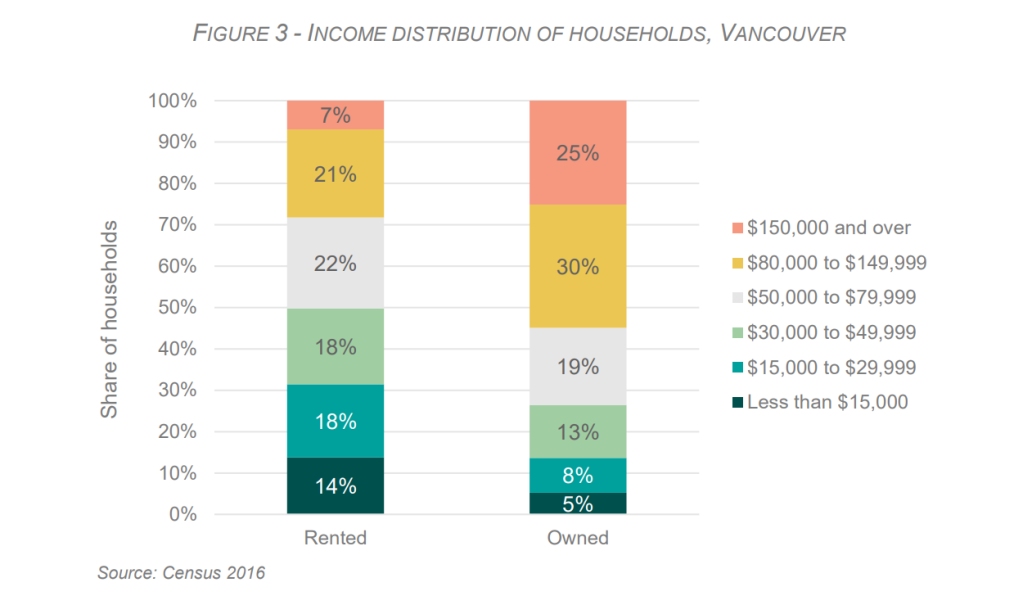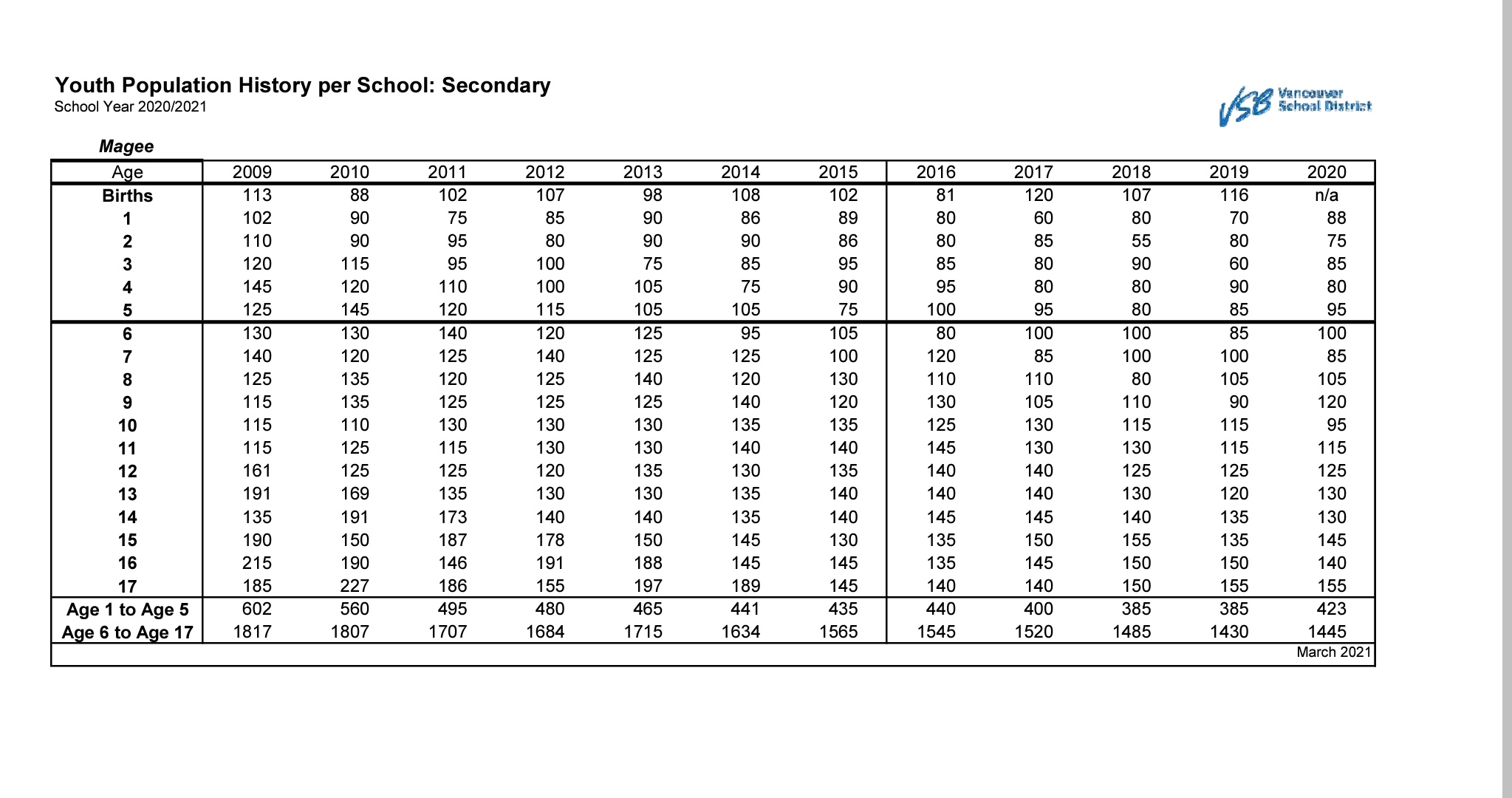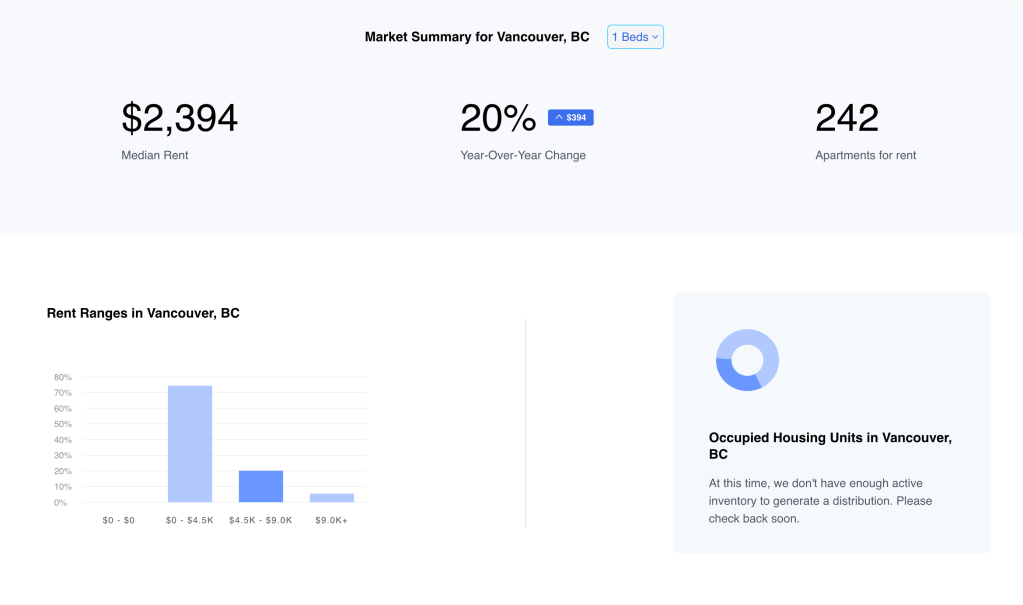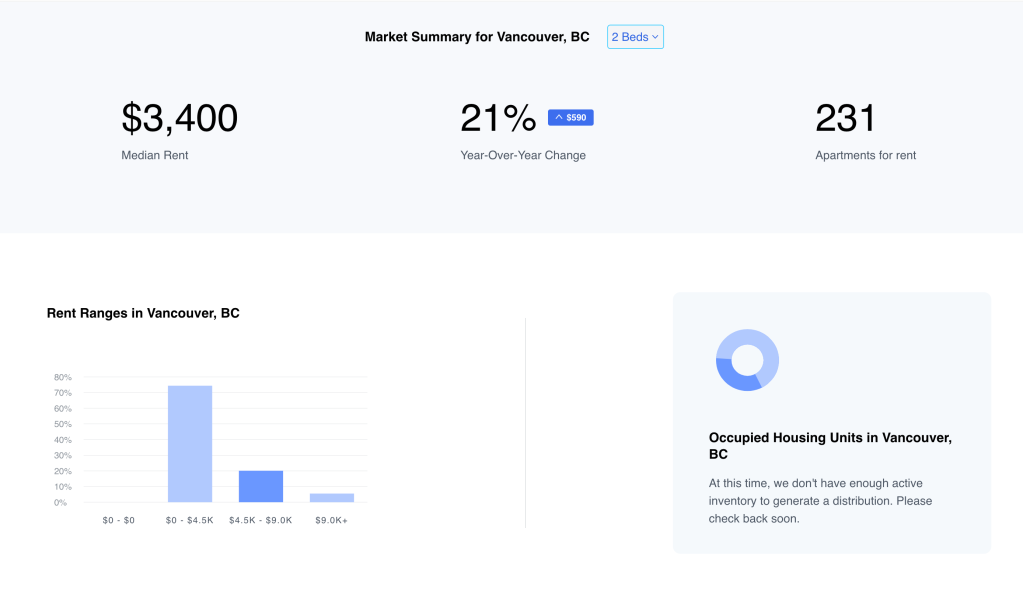Actually-affordable housing is what households can actually afford to pay while adhering to government recommendations of good financial health, and Vancouver is in an unprecedented housing crisis that is just getting worse day by day due to a combination of senseless zoning priorities and enormous rent increases squeezing too many renters out of the market. That’s why families are fleeing and our population shrank 1% last year.
But this isn’t really news. Vancouver has consistently scored poorly on affordability, and the 2022 Demographia Housing Affordability report ranks Vancouver as the third-least-affordable city with a Median Multiple 13., behind Hong Kong and Sidney but less affordable than Toronto, New York City, London, Seattle, or San Francisco.

So why is City Council ignoring the problem and what can you do about it? Here’s what I think.
In spite of Vancouver’s extraordinarily-expensive housing market, city hall doesn’t talk enough about what people can actually afford, and we need to do better to give families a reason to stop leaving the city.

The City of Vancouver needs to do better measuring what households can afford and ensuring homes that get built meet Vancouver’s needs. The data tells us too many families with kids have been picking alternatives to Vancouver this last decade. While Metro Vancouver grows by nearly 1% per year, Vancouver’s population shrank by nearly 1% last year and another public school closure was just announced because of its shockingly low enrollment.
Over 27% of Vancouver kids born in 2010 have left the city.
2022 Data published by the Vancouver School Board is clear: Since 2010, Vancouver’s under-18 population fell by over 7000 and the rate of loss is accelerating. Of the 5892 kids born in Vancouver in 2010, only 4550 were here by age 6 and only 4285 are still here at age 11 during the 2021/22 school year. Over 27% had moved on.
That’s an astounding drop.
Vancouver families are leaving the district are citing affordability as a reason and the school district is just no longer able to prevent the closure of under-utilized schools.
Over 27% of kids born in Vancouver in 2010 no longer live in the city today. Actually affordable housing built near schools would give parents a reason to stay. #vanpoli #vsb39
Tweet

The school district is closing schools. There are 4485 17 year olds in Vancouver. When they were 6 they were 4786 This is data that shows something is profoundly wrong and Vancouver needs a City Council and School Board that take the necessary measures to stop this loss.

Worst hit: low-density neighbourhoods and vulnerable families
The Arbutus greenway shows us what the consequence of low density looks like. Secondary school catchments traversed by the Arbutus greenway have lost as much as 1/3 of the youth for whom 3 worst-hit secondary schools and all the elementary schools that feed them were built. Those who follow School politics in Vancouver are all too familiar with school district staff repeated efforts to close up to 12 schools because of low enrollments and under utilization.


Together, the catchments of Point Grey, Prince of Wales, and Magee secondary schools lost approximately 1200 youth in the past decade as families sought more affordable options. Only Kitsilano Secondary’s catchment has a slightly larger youth population in 2022 than it did in 2010, benefiting from a significant increase of housing density around it.
Parents I speak to about their decision to leave they tell me about poor affordability and a lack of suitable housing with enough bedrooms for their families. For downtown families, difficulties enrolling children in school also comes up when the kids get old enough.
Liveability and affordability, and how they impact young family is an issue I have written about before on this blog. Considering the struggles of VSB with how it spends on schools. it makes sense for City Council to encourage the construction of actually-affordable family housing close to schools with declining enrollment. This will help preserve neighbourhoods by preventing the upheaval of school closures like we are seeing at Queen Elisabeth Annex and this will make the best-possible use of public funds. Bringing students closer to schools is the best way I know to justify their existance.

Image Source: Daily Hive
According to website Zumpers the June median market rents and the price increase over one year (% YoY) were the following:
1br: $2,394 – up 20% YoY
2br: $3,400 – up 21% YoY
3br: $4,200 – up 20% YoY
4br+: $5,225 – up 15% YoY
The slideshow below is compiled from June 2022 screen shots from Zumpers, It shows how Vancouver rents have been climbing in recent months at just under 2% per month.
Median asking price for rentals in Vancouver ballooned 20% over the last 12 months to around $1400 + $1000 per BR in the city, according to market data. This is too much.
Tweet
The April 2022 City of Vancouver Housing Needs report tells us that as of the 2016 census 140,750 households rented and 133,155 households owned their home, with 20,725 households benefiting from a subsidy.

Source: CITY OF VANCOUVER HOUSING NEEDS REPORT – April 2022
According to CMHC,the average and median household incomes in Vancouver are $96,423 and $72,582 respectively in 2022. As we can see from figure 1, the median renting household (number 70,000 or so), falls sell within the market-rental cohort.
It is important to consider household income distribution when looking at actual affordability. Figure 5 below shows what Vancouver’s income distribution looks like for households that rent. Taking into account CMHC recommendations that 30% of household income be used on housing, it takes an annual income of $118,800 to rent the median 2-bedroom in Vancouver as of June 2022. 72% of households that rent don’t have that kind of money.

Source: CITY OF VANCOUVER HOUSING NEEDS REPORT – April 2022
The income required for a 3-bedroom rental is now $150,000 or more, if CMHC’s recommendations are heeded. According to the city, only 7% of households that are renting in Vancouver can afford to pay so much.
A $150,000 household income or better is what CMHC says it takes to rent the median 3-bedroom in Vancouver. 7% of renting households can afford to pay this.
It takes a household income of $118,800 to rent the median 2-bedroom in Vancouver if you heed CMHC recommendations. 72% of renting households don’t have that kind of money. For a 3-bedroom, it takes more than $150,000. #vanpoli
Tweet
The median household rent capacity what the median Vancouver household can afford if it’s better off than half the households in the city. In In 2022 it is $2,016 per month. The rent the average household income is 25% more at $2,678 per month. Families who can’t afford Vancouver rent leave when they are able to. It’s that simple.
“When I’m thinking about Vancouver Council’s housing record, what people care most about is how many more homes they can afford to live in than in 2018. That’s how I measure their success and it’s not looking good” – @morganeogerbc
Tweet
If City Council won’t ensure households can afford to live in here when they work here or need housing here, it is failing at the job.
According to CHMC recommendation, paying that rent requires an annual income above $75,000 to afford the median rent for a 1-bedroom in Vancouver. Sadly according to CMHC the median income in Vancouver is below that at $72,584.
People ask me what housing affordability means for me. There are two answers to this, the personal and the political.
The personal and the political.
How does this affect me, Personally?
This problem affects us all. Persoally, I am painfully aware that if for some reason I lost my current housing arrangements I would have a very difficult time finding housing that meets my family’s needs. Like for so many others in Vancouver, my family is already under-housed wit a 2-bedroom instead of a 3-bedroom and my salary has not been keeping up with inflation.
What about at policy level?
As you know I have a keen interest in the political decisions at every level that affect people who live and work here. To my eyes, safe and stable housing is a human right. People deserve to have access to in Canada, even if our human rights law fell short of guaranteeing it.
Also, many know that as an engineer whose day job is in Tech management I am a fan of data-driven decision-making. Opinions and lived experiences play a very important role by illustrating the situation people are facing and by bringing individual voices forward so they can be heard. Measured data is also priceless because it tells us how widespread a situation is that those individual voices are bringing to our attention.
The importance of data is part of why I pushed for the reinstatement of the BC Commissioner for Human Rights and supported her call for the BC Government to publish disaggregated data about the experiences of British Columbians.
The current definition of affordability is broken but it is embedded everywhere when our city talks about housing – and this needs to change.
We need strong voices that will take a stand for what’s right, I will do my part.
I will push for the city to disaggregate data on housing and on income so we can clearly where we stand. I will ask for reporting on household income and housing costs. I will ask for comparisons to household size and all relevant demographic information using municipal, provincial, and federal data.
This is needed so Vancouver City staff and advocacy groups can better report on the factors that best impact livability in Vancouver.
I will continue to push the city to enact stronger measures that protect vulnerable renters from eviction by neglect – whether it happening to Vancouver seniors in Kerrisdale, to vulnerable persons in single-occupancy accommodations downtown, or to anyone else.
I will push for housing that meets the needs identified by the actual-affordability data City staff and civil society make available.
I will push for actually-affordable housing to be prioritized where our underutilized neighbourhood schools are, and I will work with the Vancouver School Board and the Province to make sure that people who live in Vancouver get the best possible value out of our public facilities.
If I can count on your help to make Vancouver more affordable for everyone, please click here to let my know with an email!
— Morgane – More about me












Leave a comment